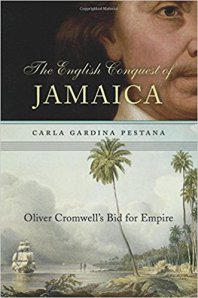[Today we are happy to share a Q&A with Nick Bunker, author of the new Young Benjamin Franklin: The Birth of Ingenuity (Knopf, 2018). Tomorrow our own Sara G. will post her review of the book.]
 Starting with his own autobiography, there have been many treatments of Benjamin Franklin’s life. How did you approach the project when you were aware of this vast literature, and how did you attempt to carve out your own space?
Starting with his own autobiography, there have been many treatments of Benjamin Franklin’s life. How did you approach the project when you were aware of this vast literature, and how did you attempt to carve out your own space?
Yes, library shelves are crammed with books about Franklin, but the literature is biased towards the second half of his life, and his achievements as politician, diplomat, and man of letters. The period up to age 40 has come to be neglected, and the same is true of his scientific career. This is because – for the most part – in chronicling Franklin’s early life biographers have preferred to rely entirely on his autobiography. But written though they are with panache, Franklin’s memoirs are really a sketch or an essay, not a rounded narrative. He mentions his scientific work only in passing and he skips through his youth in an episodic, impressionistic way. So I began by working my way through the autobiography, and Franklin’s early writings, compiling lists of questions left unanswered, references unexplained, and incidents where other sources might be available. Then I went in search of material to fill in the gaps. The central question I was asking was this: just why was Benjamin Franklin so ambitious, and so energetic? In the 1740s an opponent called Franklin “an uneasy spirit” – which he was! – and I wanted to find out why this was so. Continue reading
 We are pleased to host a Q&A with
We are pleased to host a Q&A with  Hey, remember us?
Hey, remember us? Five years ago, The Junto was born. The immediate context was parochial: as a PhD student studying early American history at the University of Cambridge, I was lonely for fellow scholars. But the niche the blog filled was much more broad: there was a need for a digital space to serve as a hub for early American scholarship. The reception we’ve since received, and the readership we still welcome, has been overwhelming. The blog’s success is indicative of our field’s vibrancy.
Five years ago, The Junto was born. The immediate context was parochial: as a PhD student studying early American history at the University of Cambridge, I was lonely for fellow scholars. But the niche the blog filled was much more broad: there was a need for a digital space to serve as a hub for early American scholarship. The reception we’ve since received, and the readership we still welcome, has been overwhelming. The blog’s success is indicative of our field’s vibrancy.  Max Perry Mueller,
Max Perry Mueller,  To accompany the review by Casey Schmitt that was
To accompany the review by Casey Schmitt that was  The role of religion in the early republic has received a fair amount of attention in the recent decades. And though there are competing narratives concerning how ministers and denominations took advantage of the post-revolutionary era—the “
The role of religion in the early republic has received a fair amount of attention in the recent decades. And though there are competing narratives concerning how ministers and denominations took advantage of the post-revolutionary era—the “

